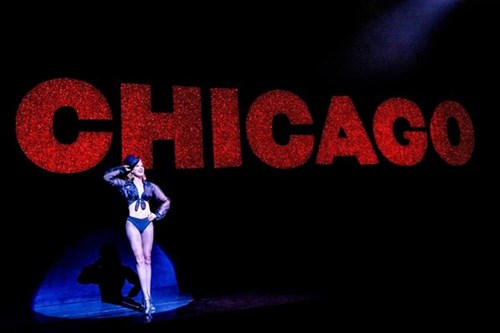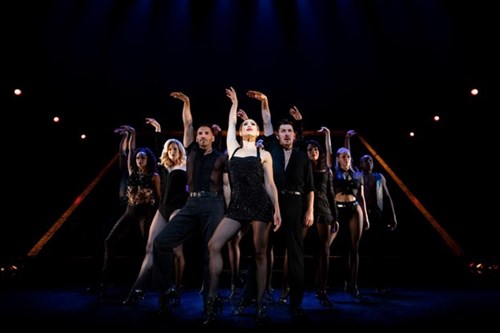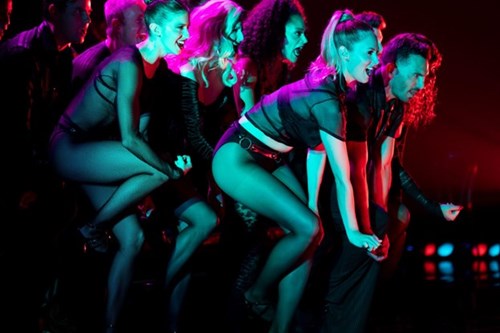
Broadway has birthed numerous iconic shows, but few have commanded the stage quite like Chicago. Since its debut in 1975, it has become a cornerstone of American theatre, a juggernaut that has left an indelible mark on the Great White Way. With its intoxicating blend of sin, sass, and show-stopping numbers, Chicago has enchanted audiences for decades, earning its place in the annals of Broadway history. From its daring choreography to its unforgettable characters, this show is a testament to the transformative power of theatre, a show that has transcended the confines of its original era to become a timeless classic. So, sit back, dim the lights, and join us as we take a trip down memory lane to the tune of 'All That Jazz.'
The roots of Chicago stretch back to the real-life events of 1920s Windy City. During this time, crime, corruption, and media sensationalism were rife, providing the perfect backdrop for the murder trials that inspired the musical. These trials, involving two women who killed their lovers, captured public attention and were reported extensively by Maurine Dallas Watkins, a journalist for the Chicago Tribune. Watkins later transformed these stories into a satirical play in 1926, aptly titled Chicago. Her play was a scathing critique of the way justice was manipulated by celebrity culture and the media, themes that would later be central to the musical.

The Jazz Age also played a significant role in shaping Chicago. This era, characterized by flappers, speakeasies, and a newfound sense of freedom, was reflected in the musical's aesthetic and sound. The creators of Chicago intentionally chose the musical language of jazz, a genre that was revolutionary, rule-bending, and deeply intertwined with the spirit of the 1920s. Thus, Chicago was born, a product of real-life drama, social commentary, and the infectious rhythm of the Jazz Age.
Chicago first came to life on Broadway in 1975, under the creative genius of director and choreographer Bob Fosse, composer John Kander, and lyricist Fred Ebb. The initial cast boasted such luminaries as Gwen Verdon as Roxie Hart, Chita Rivera as Velma Kelly, and Jerry Orbach as Billy Flynn, their performances lending the show a captivating blend of grit, glamour, and gusto.
Though the production was initially met with mixed reviews, it was appreciated for its distinctive Fosse style, bold approach to storytelling, and memorable musical numbers. Critics were divided on its darker themes and satirical tone, but audiences were more receptive, keeping the show running for 936 performances.
The narrative of Chicago mirrored the disillusionment of the 1970s, an era characterized by political scandal and cynicism toward the American Dream. Its themes of corruption, media manipulation, and the pursuit of fame resonated with audiences, who recognized the parallels between the show's Jazz Age setting and their contemporary society. Chicago held up a mirror to the American ethos, its reflection a compelling mix of entertainment and social commentary.
In 1996, Chicago was resurrected by director Walter Bobbie and choreographer Ann Reinking. Reinking, a former muse of Fosse, ensured the revival kept his signature style while also infusing it with fresh energy.
While the core narrative and characters remained unchanged, the revival presented a more streamlined version of Chicago. The production was stripped of elaborate sets, opting instead for a minimalist design that allowed the performances, music, and choreography to take center stage.
The revival was met with resounding acclaim, heralded as a triumphant return of the classic. It won six Tony Awards® in 1997, including Best Revival of a Musical, a testament to its successful reimagining.
Today, Chicago holds the title of the second longest running show in Broadway history. Its enduring popularity speaks volumes about its cultural impact. The musical continues to captivate audiences with its timeless themes, unforgettable music, and mesmerizing performances, proving that Chicago is indeed a city that never sleeps, especially when there's razzle-dazzle and 'All That Jazz.'
In the shifting sands of time, Chicago remains a beacon of relevancy, its themes echoing through the decades. The musical's exploration of fame, corruption, and media manipulation still rings true in contemporary society, perhaps even more so than when it was first staged. In an age where social media and reality television can create overnight sensations, the pursuit of fame depicted in the show resonates with modern audiences. Similarly, the musical's critique of how public image can be manipulated and commodified is all too familiar in today's media-saturated world.

Chicago also offers a timeless commentary on the justice system and the influence of wealth and celebrity on its workings. The stories of Roxie Hart and Velma Kelly, two women who manage to evade justice through charm and artifice, serve as a powerful reminder of the flaws in the legal system.
Furthermore, the musical's portrayal of empowered, complex women navigating a world of deceit and manipulation continues to strike a chord. As we continue to grapple with issues of gender equality and representation, Chicago offers a platform for female characters who are unapologetically ambitious and flawed.
Over the years, Chicago has seen a parade of illustrious performers grace its stage. From the original virtuosos Gwen Verdon and Chita Rivera, to the revival's Ann Reinking and Bebe Neuwirth, each performer has brought their unique flair to the iconic roles. The show has also been a magnet for celebrities, with stars like Pamela Anderson, Sofia Vergara, and Brooke Shields seizing the opportunity to strut their stuff on the Broadway stage.
The musical's score also found life beyond the theatre, with renditions of 'All That Jazz,' 'Cell Block Tango,' and 'Razzle Dazzle' permeating popular culture. These numbers have been covered by renowned artists, featured in reality TV competitions, and even sampled in hip-hop tracks, showcasing the enduring appeal of the Chicago soundtrack.
Perhaps the most notable adaptation of Chicago is the 2002 film directed by Rob Marshall. Starring Catherine Zeta-Jones, Renée Zellweger, and Richard Gere, the film was a critical and commercial success, winning six Academy Awards including Best Picture. This cinematic triumph brought Chicago to a wider audience and further cemented its status as a cultural phenomenon.
As we draw the curtain on our deep dive into the history of Chicago on Broadway, it's clear that this musical is more than a mere spectacle; it's a cultural touchstone that has captivated audiences for over four decades. From its Jazz Age roots to its contemporary resonance, this show has proven itself to be a timeless classic, a show that continues to dance its way into the hearts of theatre lovers around the globe.
Its enduring popularity is a testament to its compelling narrative, unforgettable music, and complex characters. But perhaps, the most significant aspect of Chicago's longevity is its uncanny ability to reflect the times. Whether it's the disillusionment of the 70s, the media-obsessed culture of today, or the universal pursuit of fame, Chicago holds up a mirror to society, its reflection as captivating as it is thought-provoking.
So, here's to Chicago, a show that has given us all that jazz and so much more. May it continue to razzle-dazzle with its infectious rhythm, searing commentary, and undying spirit, reminding us of the transformative power of theatre and the enduring allure of the spotlight.
If you haven't yet experienced the razzle-dazzle of Chicago on Broadway, consider this your standing invitation. There's a reason it has stood the test of time, captivating audiences with its timeless story, unforgettable characters, and of course, all that jazz. So why wait? Grab your tickets, take your seat, and let Chicago transport you back to the Roaring Twenties, where the gin is cold, the piano's hot, and life is a cabaret. Be prepared to be swept off your feet by the glamour, the glitz, and the sheer magic of Chicago on Broadway.